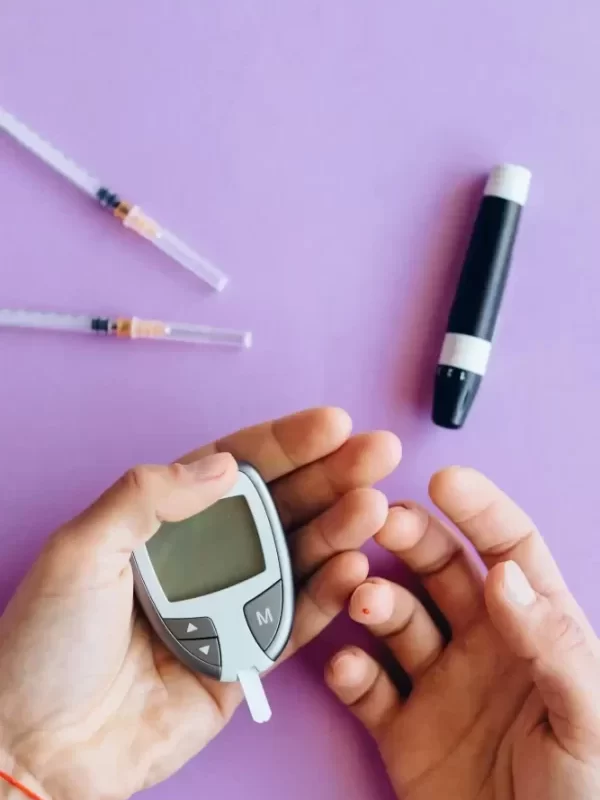Diabetes
NUTRITIONIST SERVICE

Diabetes and the importance of dietary management
Are you tired of the constant struggle to manage your diabetes? Do you feel like your blood sugar levels are on a roller coaster, leaving you feeling frustrated? Well, it’s time to take control of your health and understand the crucial role nutrition plays in achieving glycemic control.
During my consultations, we will explore how making clear food choices can be the key to easily manage diabetes, assure stable blood sugar levels and lead a healthier life.
What is diabetes ?
Diabetes is a long-term health condition characterized by high blood sugar levels. It occurs when the body either does not produce enough insulin, a hormone that helps regulate blood sugar, or cannot effectively use the insulin it produces. This leads to an imbalance in glucose levels, causing various health complications if left unmanaged such as heart disease, stroke, kidney problems, nerve damage, and vision loss.
There are two main types of diabetes: type 1 and type 2.
- Type 1 diabetes typically develops during childhood or adolescence and is caused by an autoimmune response that destroys the insulin-producing cells in the pancreas.
- Type 1 and 2 diabetes require management through lifestyle changes such as a healthy diet, and regular exercise as part of management of glycemic control.


How can nutrition help with the control of diabetes ?
Nutrition plays a crucial role in the control of diabetes. By following a well-balanced and nutritious diet, individuals with diabetes can better manage their blood sugar levels and reduce the risk of complications. Adopting a healthy lifestyle is crucial in controlling the condition.
It is also important to include healthy sources of carbohydrates in the diet. Carbohydrates directly affect blood sugar levels, so it’s important to choose complex carbohydrates such as whole grains, legumes, and vegetables over simple sugars. These complex carbohydrates are broken down more slowly by the body, resulting in a slower rise in blood
Monitoring blood sugar levels regularly is essential for individuals with diabetes and these results can be discussed with a registered dietitian to create a personalized meal plan. A registered dietitian can analyze the blood sugar readings and help find any patterns or trends that may need to be addressed. They can also provide guidance on portion sizes, timing of meals and snacks, and the inclusion of specific nutrients.
Need help ?
Nutrition plays a crucial role in the control of diabetes. By following a well-balanced and nutritious diet, individuals with diabetes can better manage their blood sugar levels and reduce the risk of complications. Adopting a healthy lifestyle is crucial in controlling the condition. This includes following a well-balanced diet that limits the intake of sugary and high-carbohydrate foods while focusing on lean proteins, whole grains, fruits, and vegetables.
It is also important to include healthy sources of carbohydrates in the diet. Carbohydrates directly affect blood sugar levels, so it’s important to choose complex carbohydrates such as whole grains, legumes, and vegetables over simple sugars. These complex carbohydrates are broken down more slowly by the body, resulting in a slower rise in blood sugars.

